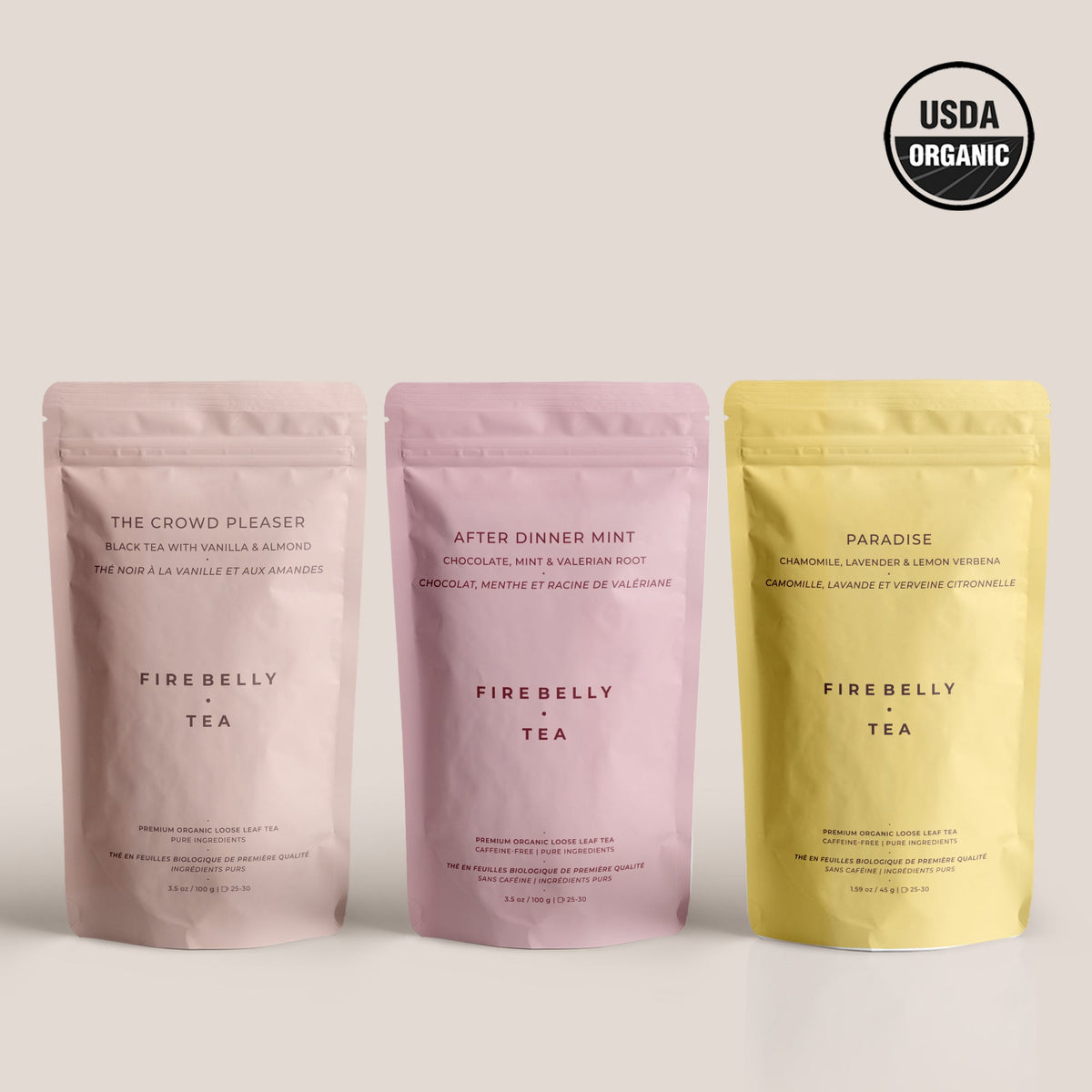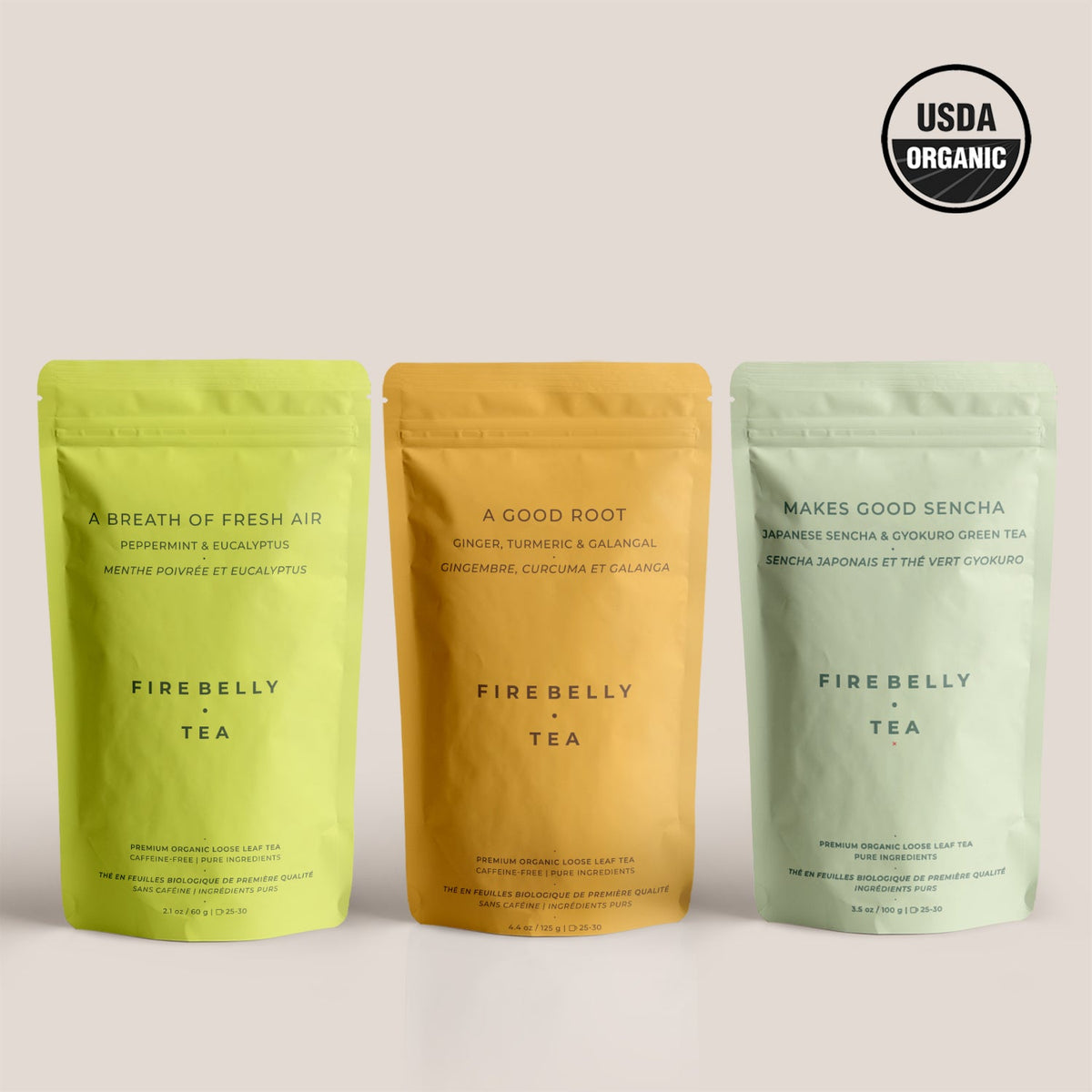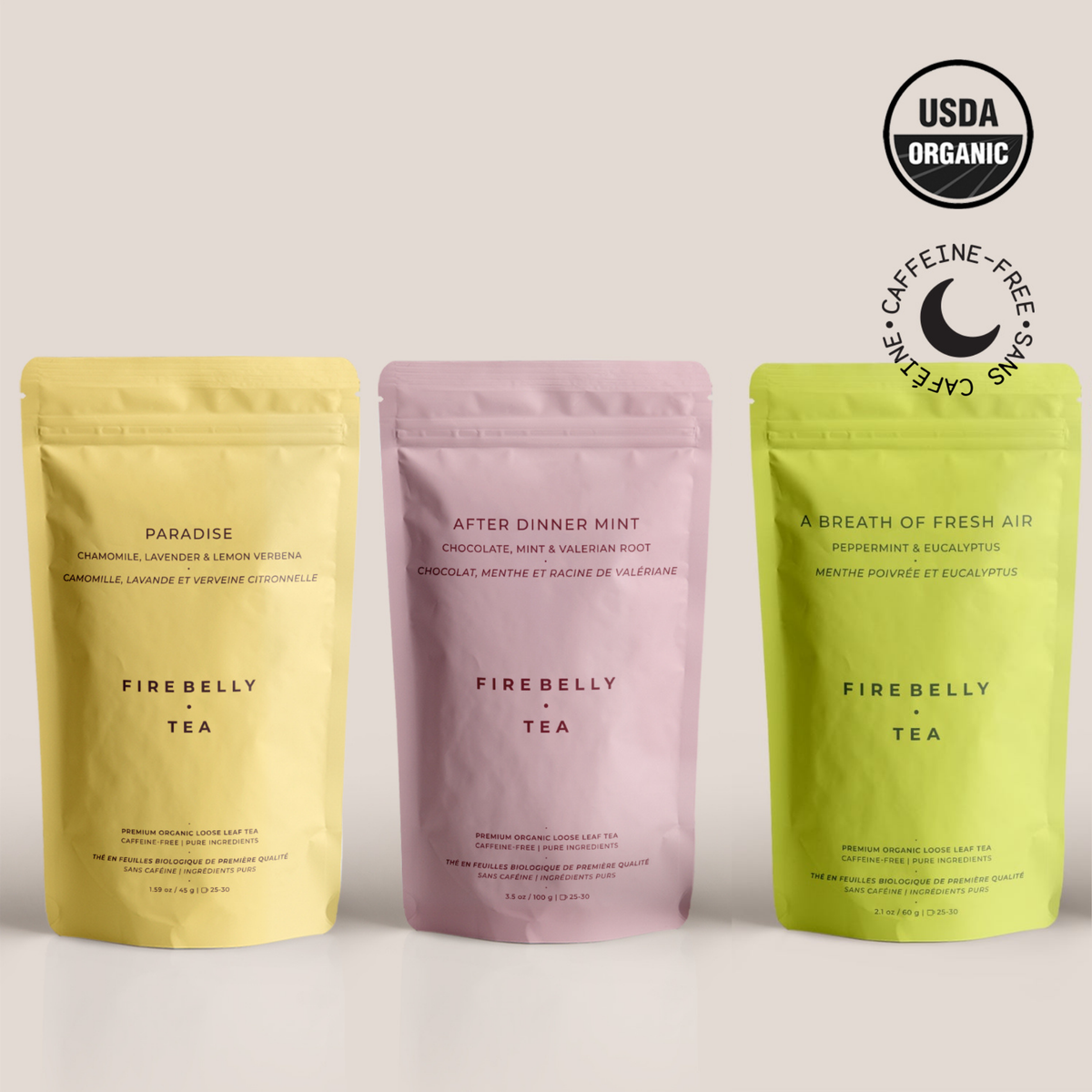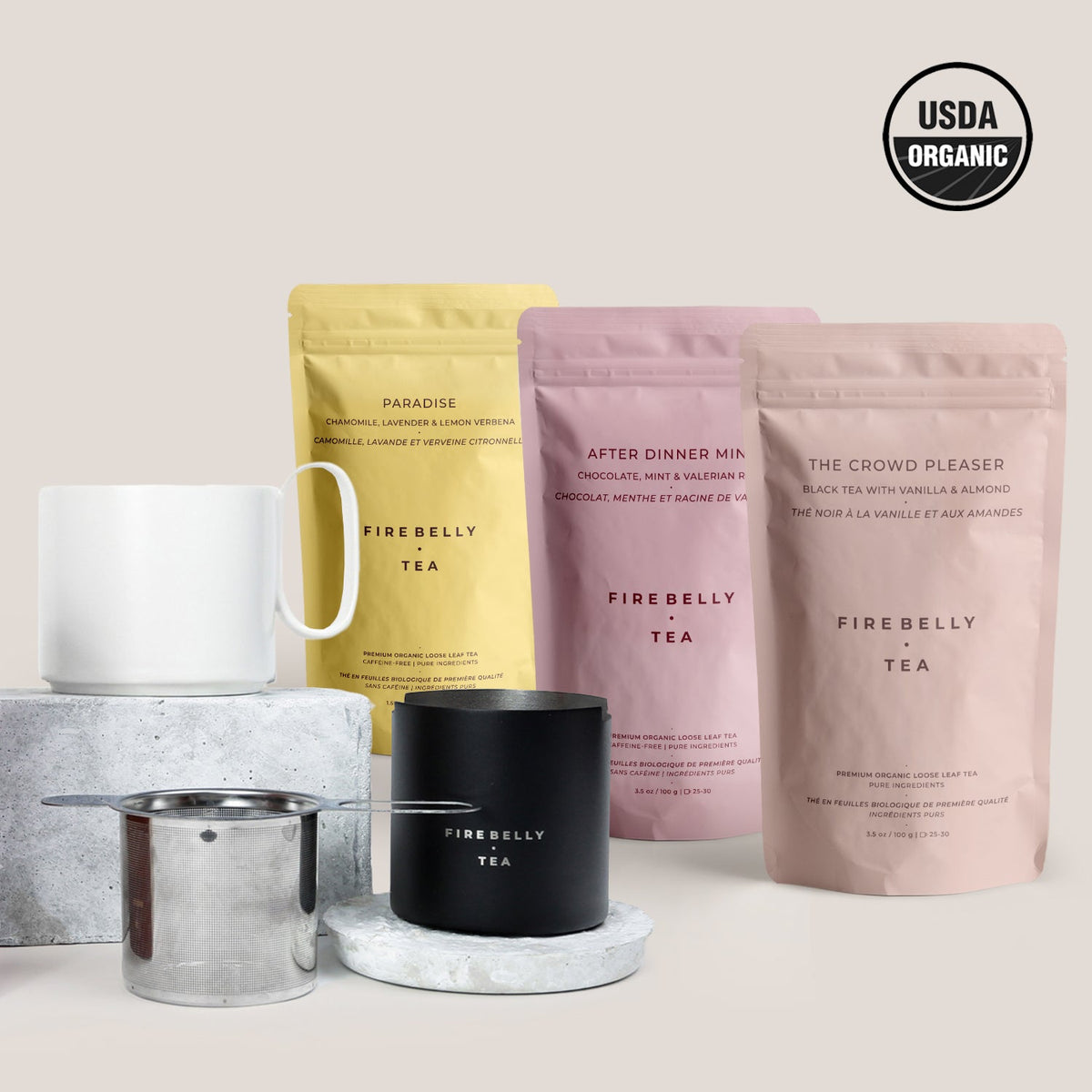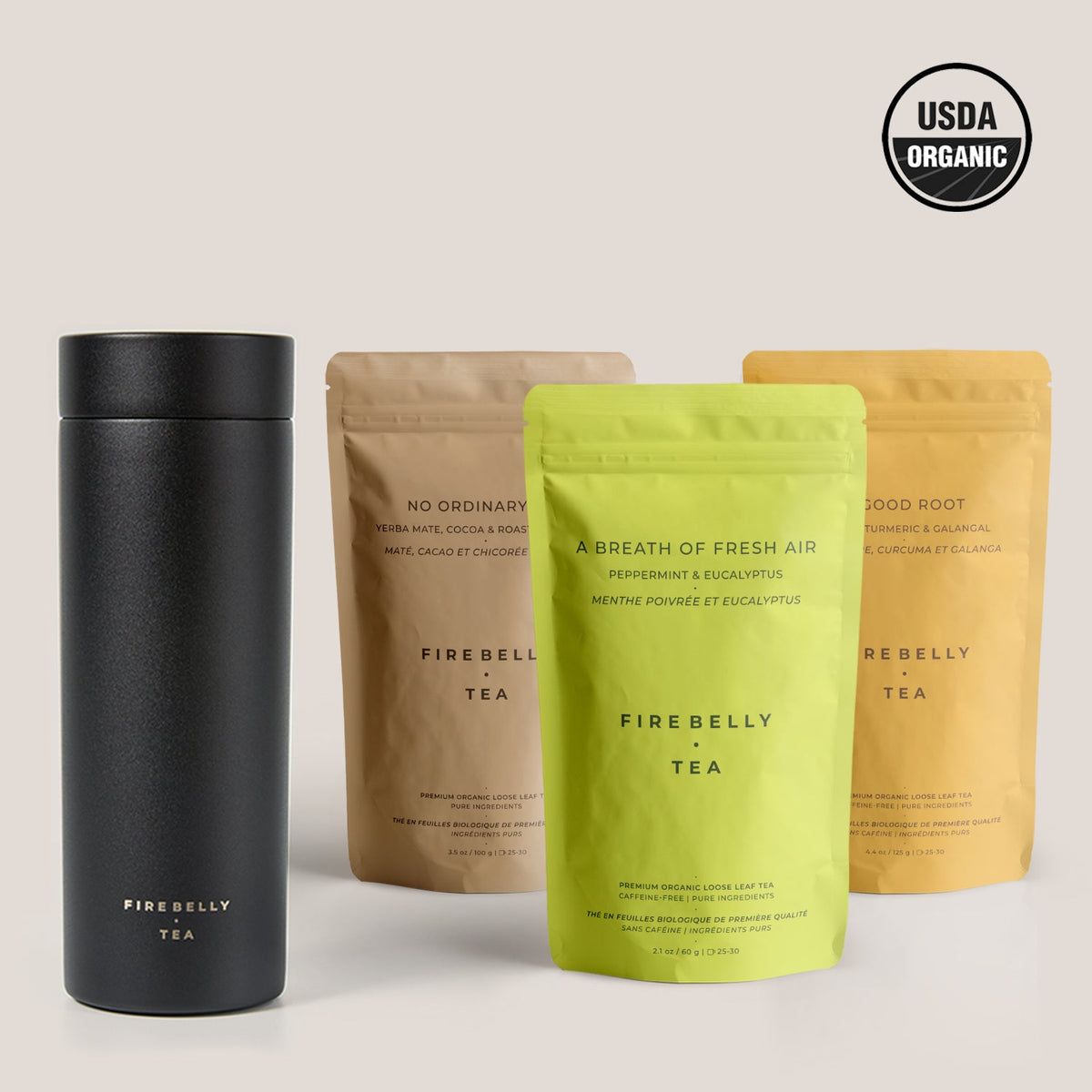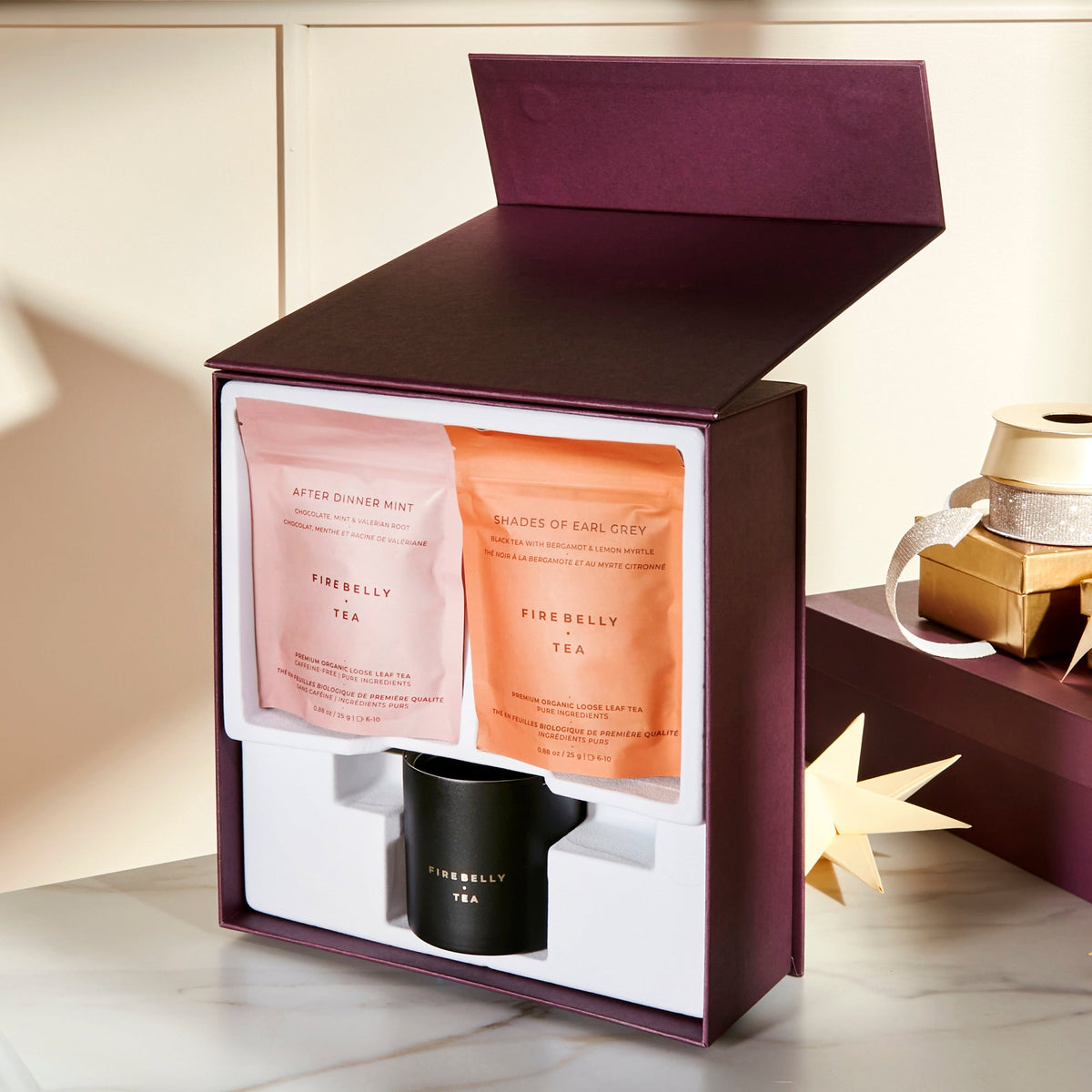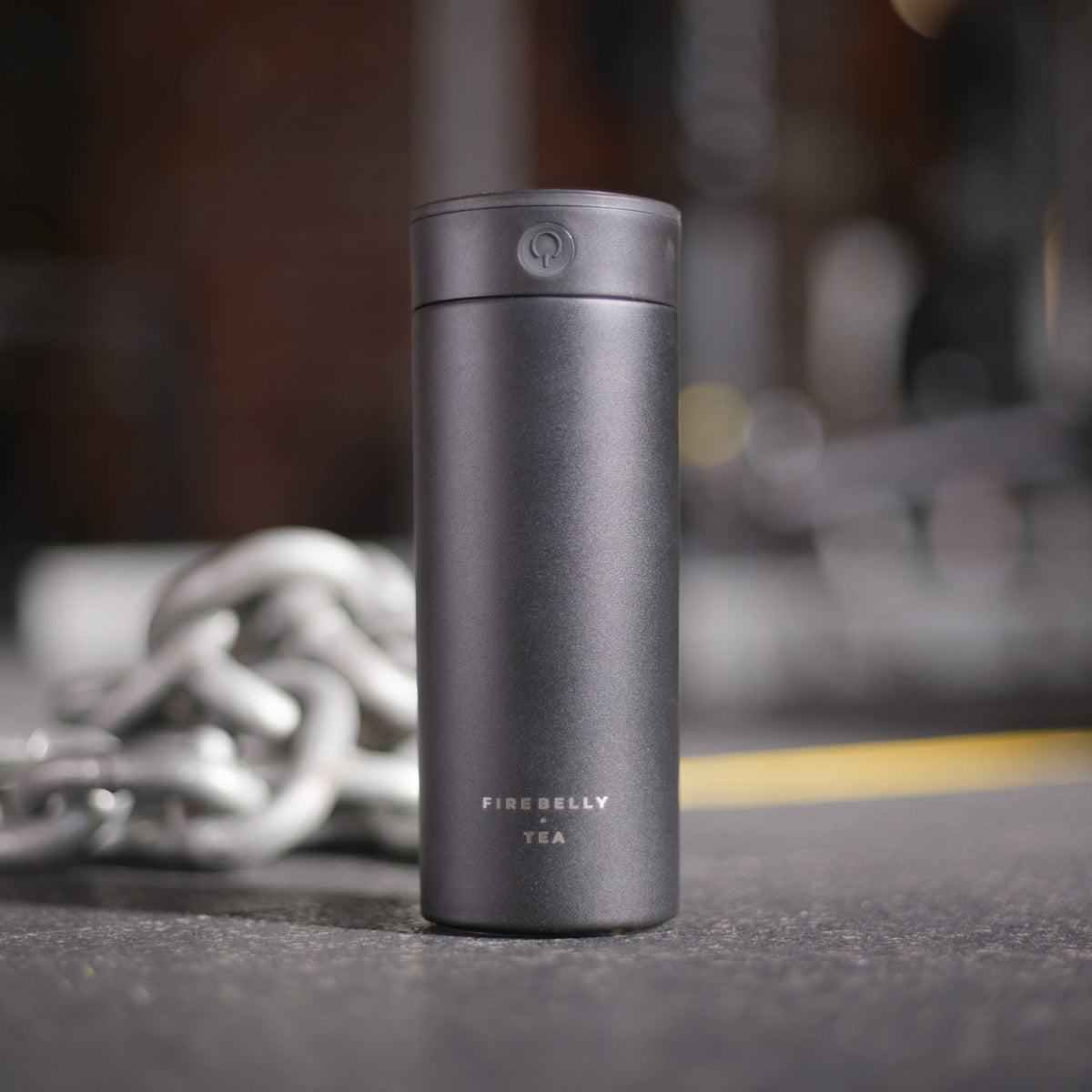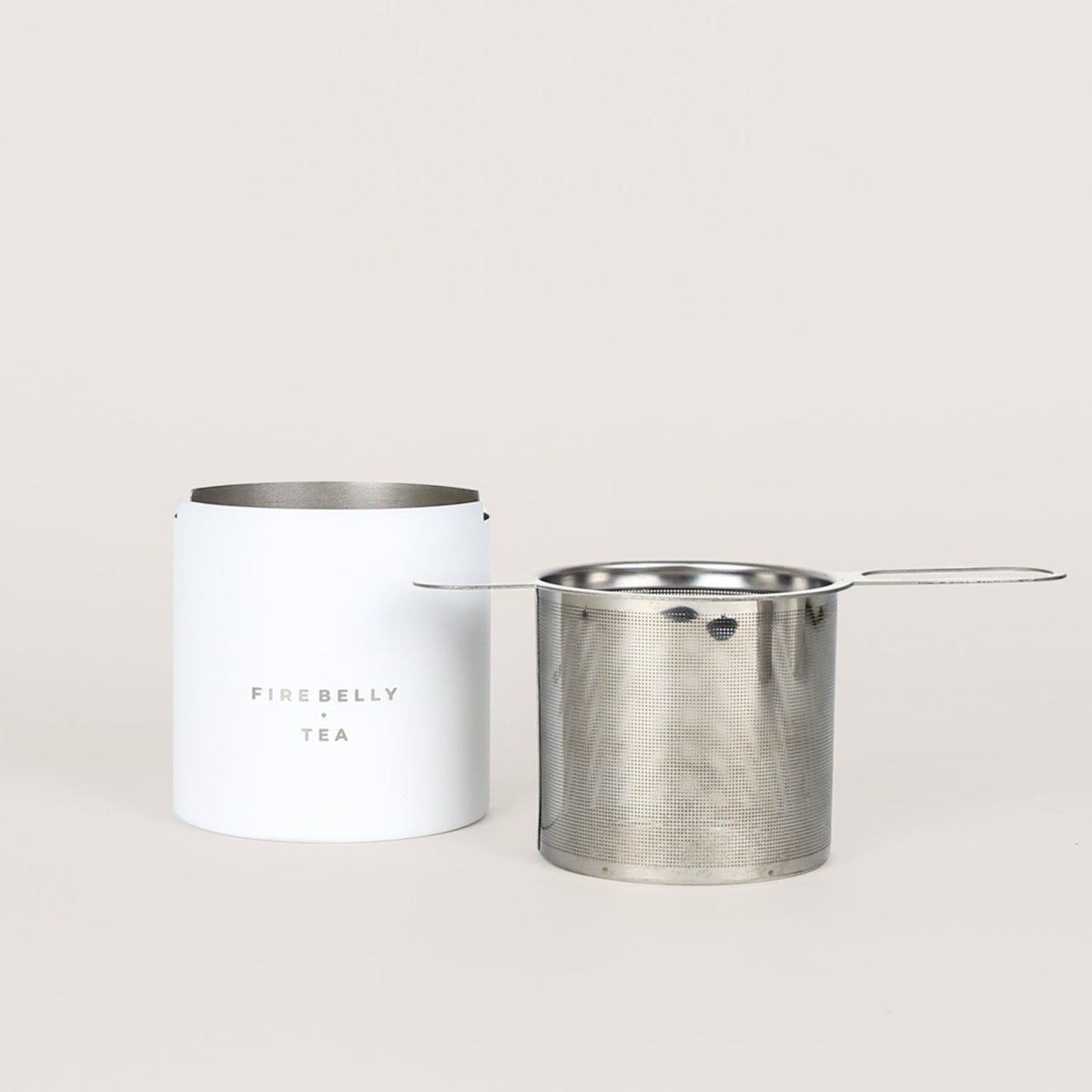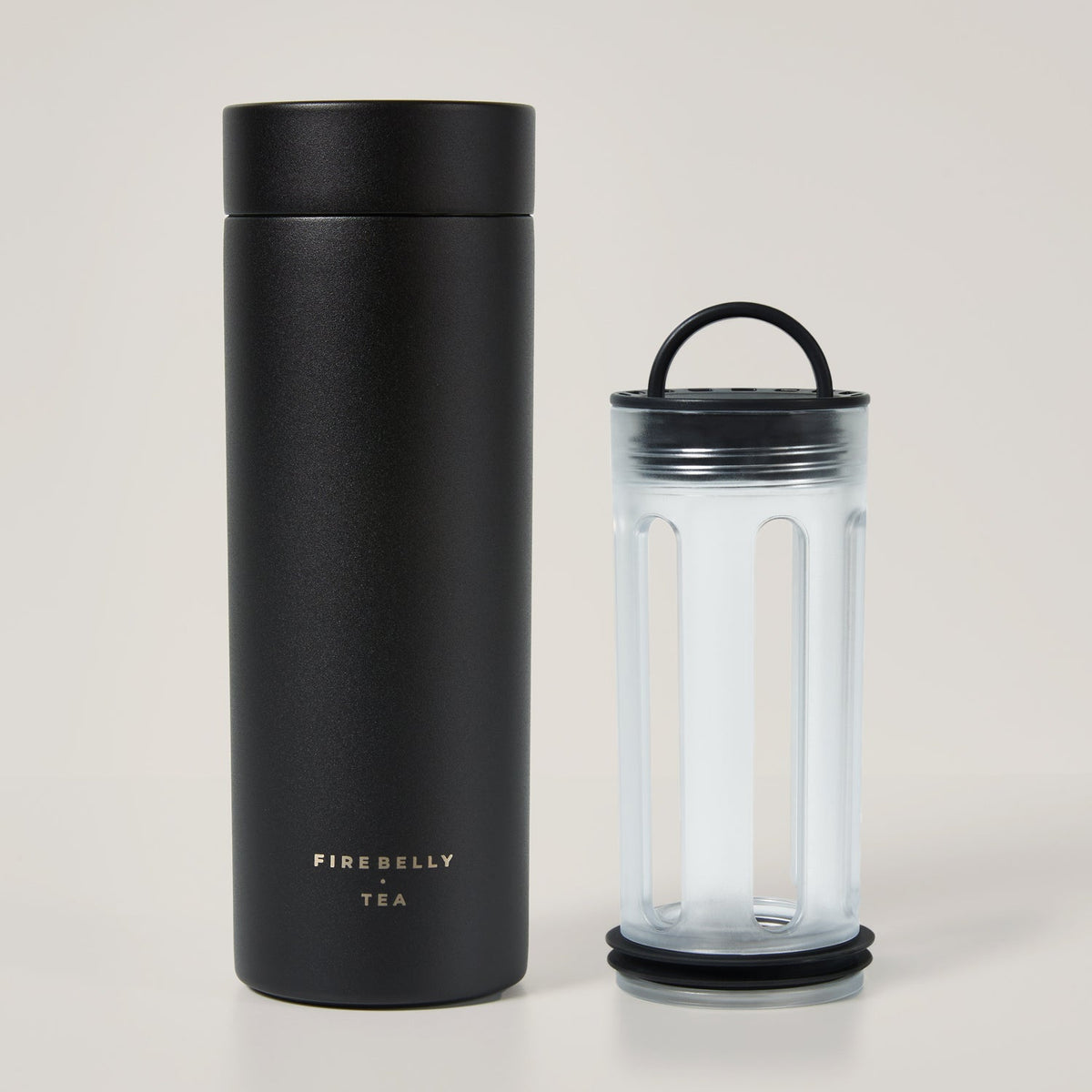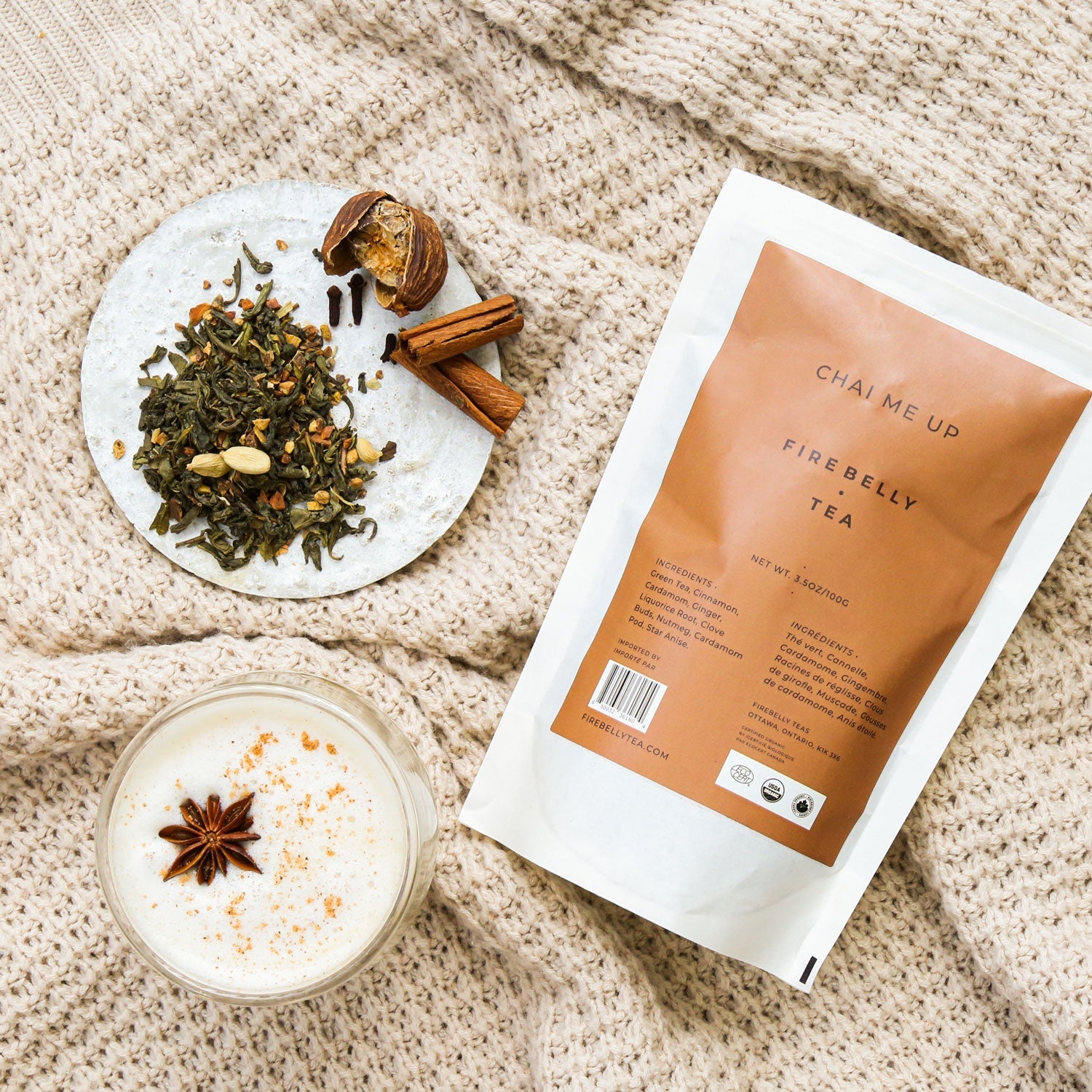Chai tea, a traditional spiced tea, is well known for its rich flavor and aromatic spices. However, the question remains for those sensitive to caffeine: Does chai have caffeine? From traditional chia tea to the ever-popular chai latte, it's essential to understand the caffeine content of chai in all its delicious forms.
In this article, we'll explore chai's caffeine content, its beneficial properties, how it compares to other drinks, and the factors influencing its caffeine levels. You'll know just how much caffeine you'll get from a regular cup of chai or a decadent creamy chai latte so you can make informed beverage choices.
Does Chai Tea Have Caffeine?
The first thing we need to know is whether chai tea has caffeine. Yes, it does, but the amount of caffeine in chai tea varies depending on the ingredients added and the preparation method. Traditionally, a typical cup of chai tea is made by brewing a blend of black tea leaves with aromatic spices infused in hot water or dairy. This means all chai teas made with black tea will have caffeine.
Does Rooibos Chai Tea Have Caffeine?
If you want to avoid caffeine entirely but love the spicy goodness of chai tea, you may have heard about rooibos chai tea. It's a caffeine-free substitute for regular chai tea worth noting. South African rooibos herbal tea is the base for this tea blend.
It has flavor and health benefits and works beautifully with spices. And if you don't like rooibos or can't find it where you live, you can use other herbal teas as caffeine-free substitutes.
So How Much Caffeine is in Chai Tea and Chai Tea Lattes Anyway?
To understand the amount of caffeine in chai tea and chai tea lattes specifically, it's essential to delve deeper into the intricacies of what's in a chai tea or chai latte.
The Black Tea Base
Black tea is the traditional base for chai tea and chai lattes, and we all know black tea contains caffeine. The approximate amount of caffeine in black tea typically ranges between 40 and 70 milligrams per 8-ounce cup. Still, it can vary based on several factors, including brewing time, the tea leaf quality, and the specific type of black tea used in the chai recipe. Whole-leaf tea leaves have more caffeine, beneficial compounds, and flavor than a powdered or tea bag version, giving you a more potent, more flavorful brew.
The Caffeinated Chai Latte
Chai tea lattes, on the other hand, present a more nuanced caffeine profile due to the excessive amount of dairy or dairy alternatives used to give it its creamy texture. While all that dairy may theoretically dilute the chai concentrate used in a chai latte, the actual amount of standard latte concentrates can fluctuate significantly depending on various variables such as the brand of chai concentrate used and, more importantly, the mood of the barista creating your concoction!
Moods aside, the more common factors that affect caffeine in chai will be, for example, the ratio of tea to dairy, the type of milk used, and any other ingredients or flavorings introduced into the chai latte.
The Magical Pick Me Up of Masala Chai
Masala chai, a beloved spiced tea from the Indian subcontinent, offers delightful chai blends of robust black tea and aromatic spices. When considering the caffeine level in masala chai, we once again point to the star ingredient—black tea.
In masala chai, the caffeine from black tea is complemented by a harmonious blend of spices, including cinnamon, ginger, cardamom, cloves, star anise, and black pepper. While these spices contribute to the flavorful profile of masala chai, they are naturally caffeine-free. Therefore, masala chai's overall amount of caffeine depends on the amount of black tea used in the brewing process.
It's worth noting that masala chai is often prepared with a combination of tea leaves and milk, which can further influence the final caffeine concentration per serving. Just like with a chai latte, adding dairy or dairy alternatives may dilute the caffeine content in your final drink.
Masala chai offers a balanced caffeine experience, a moderate energy boost, and a rich, flavorful beverage with an aromatic spice blend. Whether enjoyed as a morning pick-me-up or a comforting beverage throughout the day, masala chai continues to be a popular way to enjoy the flavor of chai.
Other Factors Affected Chai Teas and Lattes
Other factors may affect the caffeine content in chai teas and chai lattes. The most common factors are the strength of the brewed tea and the duration of steeping the leaves. These both play critical roles in determining the caffeine content in chai tea and chai tea lattes.
A longer steeping time or a higher leaf-to-water ratio can produce a potent brew with increased caffeine concentration in chai teas and lattes. A shorter steep time or a lower leaf-to-water ratio creates a milder infusion with reduced caffeine content.
It's also important to acknowledge that the caffeine content of chai can vary between commercial products and homemade preparations. Pre-packaged chai tea blends and pre-made chai concentrates may contain more or less caffeine, depending on the brand and formulation.
Similarly, baristas at coffee shops and cafes may employ varying techniques and ingredient proportions when crafting your chai latte, meaning the approximate caffeine levels can vary depending on the establishment and barista.
Knowing these variables can exist, you'll understand the caffeine content of your chai beverage and make informed choices to suit your preferences and dietary needs.
Comparing The Caffeine Levels In Chai, Chai Lattes, Coffee, And Other Teas
Does chai tea have caffeine levels similar to coffee? When comparing the caffeine in chai and chai lattes to coffee and other teas, it's essential to consider the inherent caffeine content of each beverage.
Nothing wakes you up quicker than coffee. Although considered to be high in caffeine, a standard cup of chai tea typically contains less per serving than coffee. On average, an 8-ounce cup of coffee contains approximately 95 milligrams of caffeine, providing an added kick of energy to start your morning and helping you stay alert throughout the day.
In contrast, chai tea, made with black tea as its base, offers a more moderate caffeine intake. A chai-based beverage with a black tea base typically ranges between 40 and 70 milligrams per 8-ounce cup. Although caffeine is the same compound found in coffee and chai, the moderate caffeine content in chai provides a gentle pick-me-up without the caffeine jitters associated with coffee consumption.
From Green to White, and Herbal Tea: Caffeine in Other Types of Chai Tea Blends
What about other types of tea? Coffee has more caffeine than green or white tea. However, despite having a lower caffeine content, chai tea blends from true teas still offer a mild yet desirable stimulant effect for an average serving size.
All true teas come from the same plant, the Camellia sinensis. These include black, green, oolong, and white teas. Although each type is processed differently, they all contain some level of caffeine.
Green tea, prized for its delicate flavor and numerous benefits, typically contains less caffeine than a cup of coffee and even black tea. On average, an 8-ounce cup of brewed green tea may provide approximately 25 to 35 milligrams of caffeine, offering a flavor-packed coffee alternative for those looking for a moderate amount of caffeine. Green tea chai is a perfectly aromatic and spicy caffeine-free option for those seeking lower caffeine alternatives but still want the chai flavor.
Similarly, white tea, known for its subtle flavor and delicate aroma, boasts even lower caffeine levels than black and green tea varieties. An 8-ounce cup of brewed white tea may contain approximately 15 to 30 milligrams of caffeine. Although not as popular as green tea chai, white tea chai is an excellent choice for individuals sensitive to caffeine or seeking an even gentler nudge to the nervous system.
Herbal tea is not a true tea at all. Instead of being made from the tea plant, herbal tea is made using other plants' flowers, roots, spices, leaves, and stems. Some common herbal teas are peppermint, ginger, chamomile, and lavender. Surprisingly, herbal teas do not contain caffeine unless prepared as a blend with tea leaves from the tea plant. You can experiment with various herbal teas to create a satisfying and delicious herbal-infused chai blend. Chamomile chai, anyone?
Rooibos chai, made from the leaves of the South African rooibos plant, is naturally caffeine-free and boasts a rich, earthy flavor with hints of sweetness and a blast of chai flavor. Like other chai blends, rooibos chai provides earthy sweetness and spicy goodness.
Health Benefits Of Chai Tea
Beyond its caffeine content, chai tea boasts many health benefits from its unique blend of aromatic spices and tea base. The spices commonly found in chai, including cinnamon, star anise, ginger, cardamom, and cloves, offer a rich array of antioxidants and anti-inflammatory properties. These antioxidants can help your body combat oxidative stress and free radicals, supporting overall health and well-being.
-
Cinnamon: A staple spice in chai, cinnamon is renowned for its high antioxidant content, particularly polyphenols and flavonoids. These compounds can reduce inflammation, regulate blood sugar levels, and improve insulin sensitivity, making cinnamon a valuable addition to the diet for individuals managing diabetes or insulin resistance.
-
Ginger: Another key ingredient in chai is ginger, which contains bioactive compounds such as gingerol and shogaol, which exhibit powerful anti-inflammatory and digestive properties. This zesty root has been used for centuries in traditional medicine to alleviate nausea, improve digestion, and relieve gastrointestinal discomfort.
-
Cardamom: This exotic spice is prized for its distinct aroma and flavor and is rich in antioxidants and essential oils that boost its medicinal properties. Studies show that cardamom may help improve digestive health by stimulating gastric juice secretion and enzymes, thereby aiding food digestion and alleviating symptoms of indigestion and bloating.
-
Cloves: Commonly used in chai spice blends, cloves contain eugenol, which is a compound known for its analgesic and anti-inflammatory effects. Cloves are known to relieve dental pain, soothe sore throats, and alleviate respiratory conditions such as coughs and colds.
-
Black pepper: This vital ingredient in chai contains piperine, a bioactive compound that enhances nutrient absorption and exhibits antioxidant properties. Piperine can improve digestion, support metabolism, and reduce inflammation.
-
Black tea: The primary ingredient in traditional chai is black tea, which provides a rich caffeine content and contains a unique class of antioxidants called flavonoids, particularly catechins and theaflavins. These antioxidants have been linked to various health-promoting benefits, including improved cardiovascular health, reduced risk of cardiovascular disease, and lowered cholesterol levels.
Sleep and Our Health
If you are sensitive to caffeine or want to reduce caffeine intake, consuming chai tea later in the day or just before bed may impact your sleep cycle. Although not every person's body reacts the same way to caffeine, tea is a known stimulant that can interfere with sleep because it increases alertness to the central nervous system and delays sleep onset.
Limiting the consumption of caffeinated beverages, including chai tea, is recommended to minimize the potential effects of caffeine on sleep. Caffeinated drinks such as coffee and chai tea are generally served in the morning and early afternoon to maintain a better sleep schedule.
Are There Caffeine-Free Versions of Chai?
Yes, caffeine-free versions of chai are available, offering a delectable alternative for individuals looking to avoid caffeine entirely. An herbal chai blend, using rooibos or chamomile, is a caffeine-free option that delivers the same delightful combination of spices without the stimulating effects of caffeine.
Additionally, decaffeinated black tea can be used as a base for chai, providing the familiar taste of traditional chai without the caffeine content.
FAQ About the Caffeine in Chai Tea Latte
Are you still concerned about the caffeine content in your chai tea, chai latte, or chai blends? Here are some FAQs to help you understand your chai caffeine conundrum.
-
Can I request a decaffeinated chai tea latte? Yes, many cafes and coffee shops offer decaffeinated lattes made with decaffeinated black tea or a caffeine-free herbal blend of spices.
-
Does the type of milk affect the caffeine content of a chai latte? While the type of milk used in a chai latte does not directly impact the caffeine content, it may affect the overall flavor and texture of the beverage. Opting for non-dairy alternatives such as almond milk or oat milk can provide a creamy texture for lactose-intolerant people who are sensitive to milk or want to cut calories.
-
Can we make a caffeine-free chai latte at home? Absolutely! You can make a caffeine-free chai latte at home using caffeine-free herbal chai blends or decaffeinated black tea. Follow the same steps for brewing and preparing the latte, substituting caffeine-free tea for traditional black tea.
Conclusion: Enjoying Chai Tea and Finding The Perfect Balance
Whether you're sipping chai for its rich flavor, aromatic spices, or caffeine content, understanding the nuances of chai tea and its variations can help you make informed choices about your caffeinated beverage preferences.
Chai options can vary depending on your tastes and lifestyle, from traditional black tea chai to caffeine-free herbal blends. By balancing enjoyment with moderation and considering factors such as caffeine sensitivity and additional health benefits, you can fully embrace the serenity of chai while staying energized and alert throughout your day. Here is an amazing chai tea you can try!
